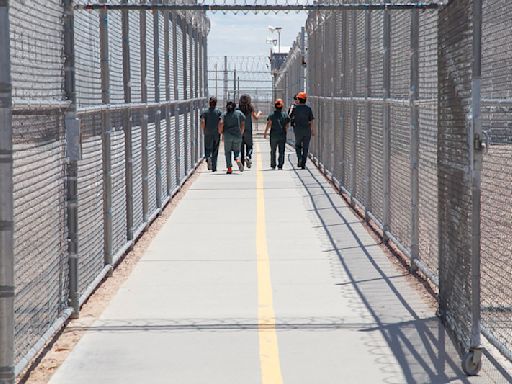Search results
Jan 29, 2021 · In total, the rate of ice loss has increased by 65 percent between 1994 and 2017. Overall, between 1994 and 2017, planet Earth lost 28 trillion tonnes of ice. To put that in perspective, that would be equivalent to a 100-meter-thick sheet of ice the size of the U.K. This melting ice has been the most concerning in two polar climates: Antarctica ...
Jan 23, 2020 · A climate scientist explains what the melting Arctic means for the world. The loss of Arctic ice imperils many species - including homo sapiens. Image: REUTERS/Mathieu Belanger. Since the 1970s, we have lost 75% of the volume of Arctic summer sea ice. The Arctic affects the jet stream, causing extreme weather all over the world.
Projected sea-level rise will have widespread effects around the world. The Antarctic ice sheet is the largest mass of ice in the world, holding around 60% of the world’s fresh water. If it all melted, global average sea levels would rise by 58 metres. But scientists are grappling with exactly how global warming will affect this great ice sheet.
Sea level rise refers to the increase in the average height of the ocean’s surface, measured from the center of the Earth. This phenomenon is primarily driven by two main factors: the melting of glaciers and ice sheets, and the thermal expansion of seawater as it warms. As global temperatures rise due to climate change, ice sheets in ...
May 4, 2021 · Melting glaciers could be causing 25 to 30% of sea level rise. Greenland's ice sheet could melt at a rate not seen in the last 130,000 years. Glaciers are currently losing more mass than either the Greenland or Antarctic ice sheets, the study finds, and annual rates of glacier thinning have “nearly doubled” from 36cm in 2000 to 69cm in 2019 ...
Dec 15, 2022 · A review published in 2016 finds that “loss of Arctic sea ice owing to climate change is the primary threat to polar bears throughout their range”. The paper plots sea-ice concentration in 18 of the 19 key regions over 1979-2014. It shows that ice decline is more notable in some regions than others.
Feb 8, 2024 · Six technologies are critical for climate adaptation, according to the World Economic Forum’s new report, Innovation and Adaptation in the Climate Crisis. These are artificial intelligence, drones, Earth observation, advanced computing, the Internet of Things and virtual and augmented reality. For example, early warning systems powered by ...
Jan 2, 2023 · To the diehard crypto utopians (and some crypto-anarchists), 2022 was not just another “crypto winter,” but more of an ice age. Along with a broad loss of confidence, economic value and a market littered with the tombstones of failed firms and projects, perhaps the era of crypto speculation will remain frozen in ice, giving way to a Cambrian explosion for responsible, always-on internet finance.
Jan 11, 2024 · Gill Einhorn. In its annual Global Risk Report, the World Economic Forum named 3 key climate risks as top global challenges: urgent action is needed to combat them. Extreme weather events, critical change to Earth systems and biodiversity loss the top three 10-year risks. While the scale of the challenge is historic, the good news is that many ...
Feb 12, 2024 · 4. Using AI to recycle more waste. Another AI system is helping to tackle climate change by making waste management more efficient. Waste is a big producer of methane and is responsible for 16% of global greenhouse gas (GHG) emissions, according to the United States Environmental Protection Agency.




